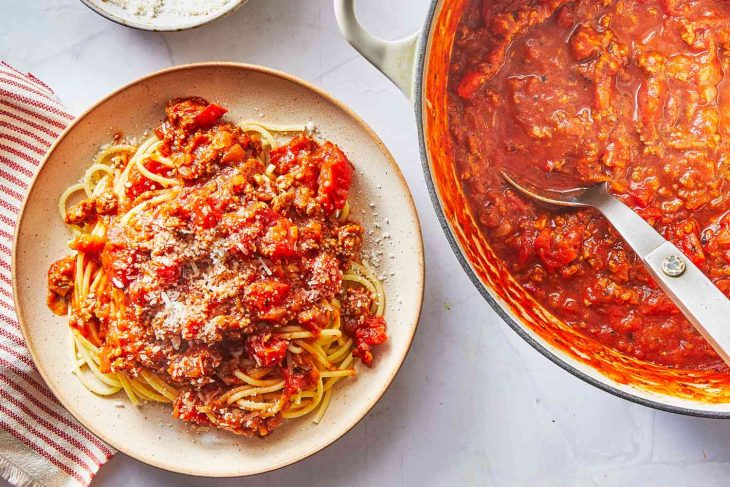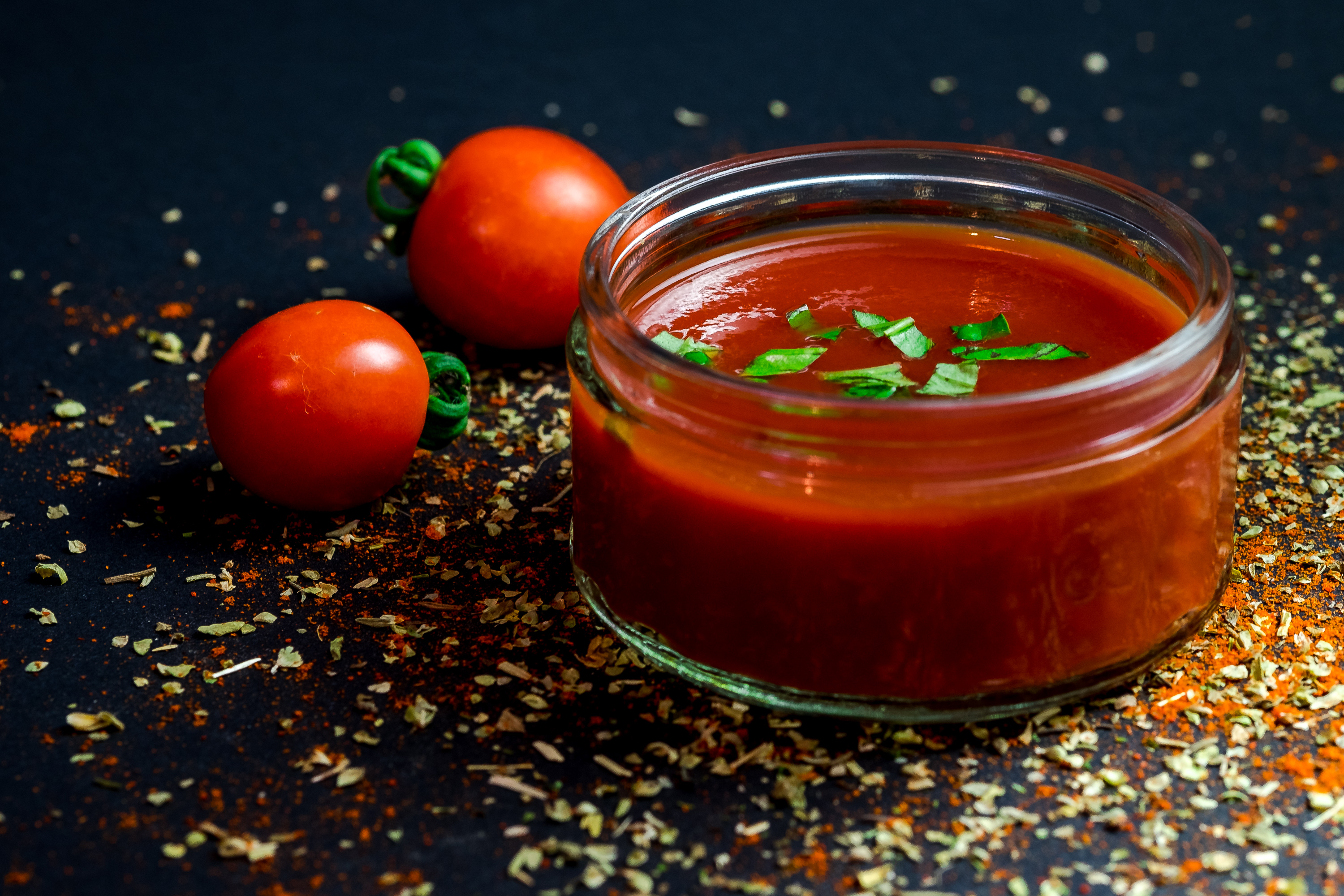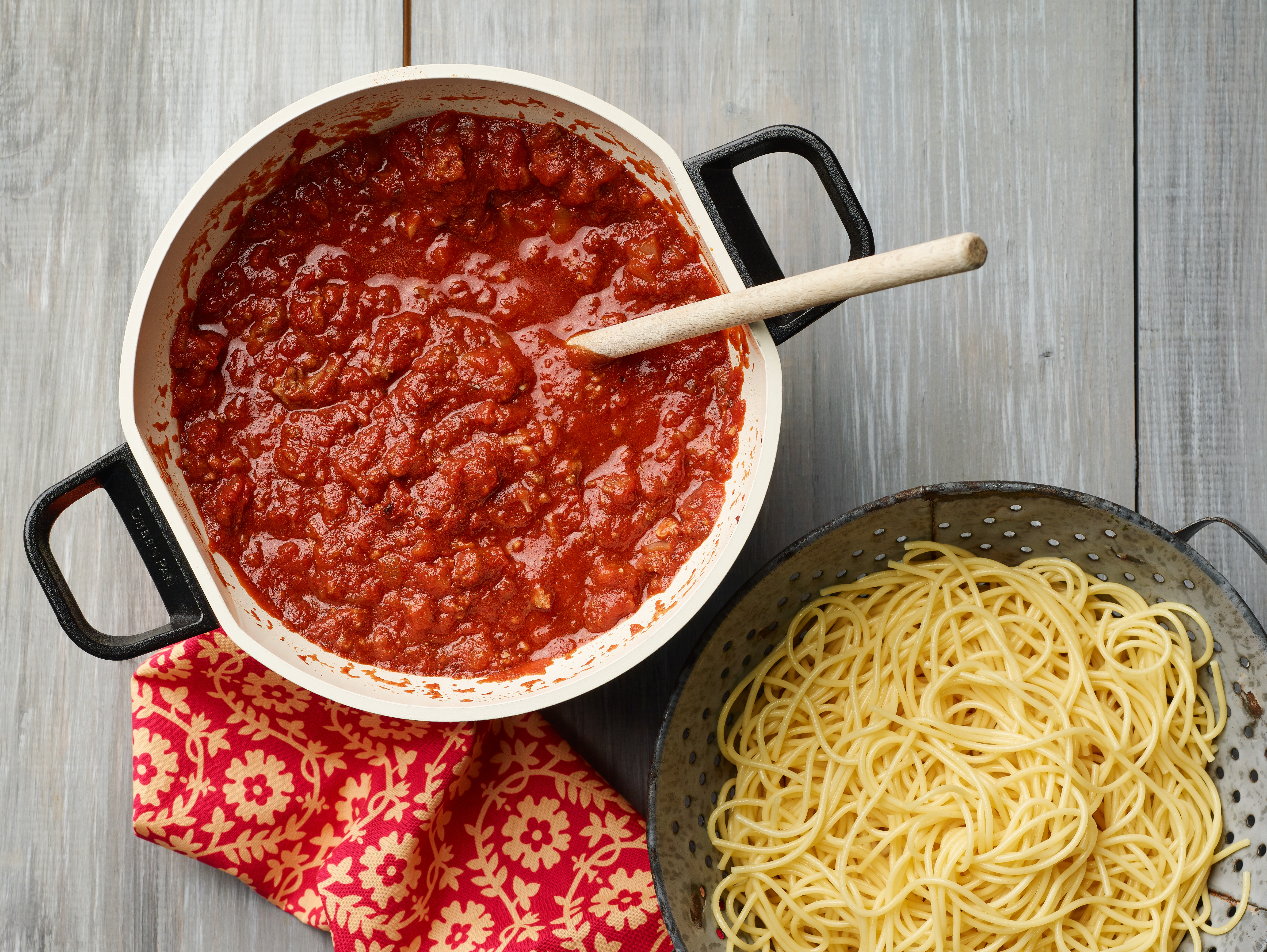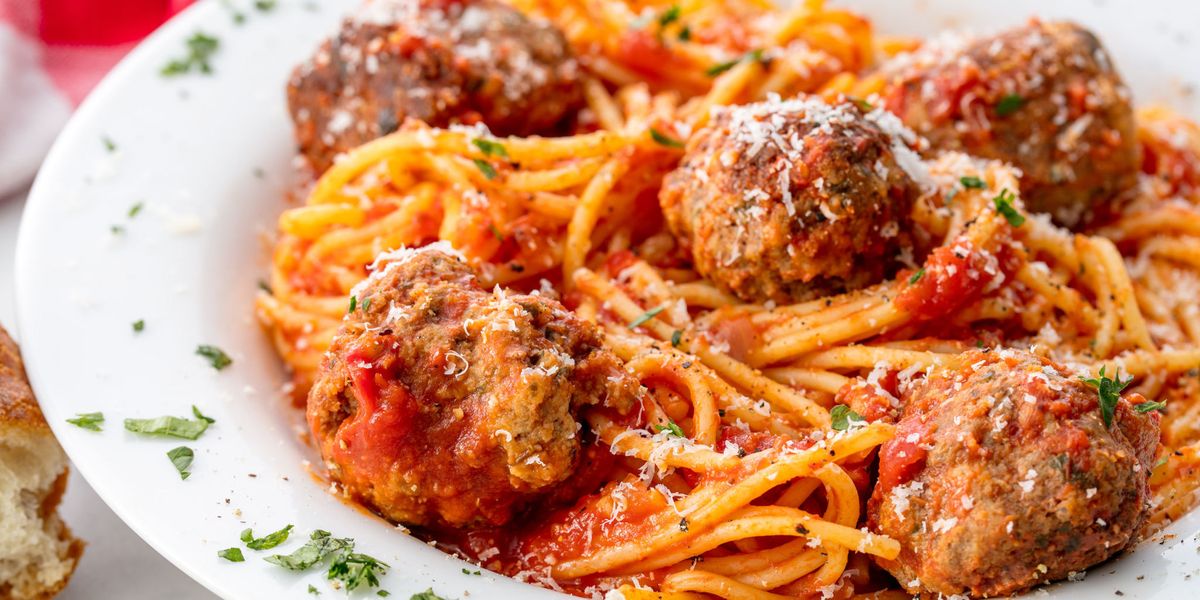
Spaghetti sauce is a versatile and flavorful condiment that adds a burst of taste to pasta dishes, pizzas, and other delectable meals. Made from a combination of tomatoes, herbs, spices, and other ingredients, spaghetti sauce not only enhances the taste of your favorite dishes but also offers a range of essential nutrients. In this article, we will delve into the nutrition facts of spaghetti sauce, highlighting its key components and their potential health benefits. Whether you’re a culinary enthusiast or simply curious about the nutritional value of this popular sauce, let’s dive in and explore the 14 spaghetti sauce nutrition facts!
Tomatoes: The Base of Spaghetti Sauce
At the heart of any delicious spaghetti sauce is the humble tomato. Tomatoes are not only juicy and flavorful but also packed with essential nutrients. They are an excellent source of vitamin C, which plays a vital role in boosting the immune system and promoting collagen production. Tomatoes also contain lycopene, a powerful antioxidant known for its potential to reduce the risk of certain types of cancer, including prostate and lung cancer. Moreover, they are low in calories and fat, making them a healthy choice for those watching their weight.

Calories and Macronutrients
Spaghetti sauce is relatively low in calories, with an average serving (approximately half a cup) containing around 70 calories. It is also low in fat, with less than one gram per serving. However, it is important to note that the calorie and fat content can vary depending on the brand and recipe of the sauce. When incorporating spaghetti sauce into your diet, it’s essential to consider portion sizes to maintain a balanced intake.
Fiber for Digestive Health
Fiber is an essential component of a healthy diet, and spaghetti sauce can contribute to your daily fiber intake. Fiber aids in digestion, promotes a feeling of fullness and helps regulate blood sugar levels. While the amount of fiber in spaghetti sauce may be relatively modest compared to other high-fiber foods, every little bit counts toward reaching your recommended daily intake.
Essential Vitamins and Minerals
Spaghetti sauce contains an array of vitamins and minerals that contribute to overall health. Alongside vitamin C, as mentioned earlier, it also provides vitamin A, which is essential for maintaining healthy vision, promoting cell growth, and supporting immune function. Additionally, spaghetti sauce contains potassium, an electrolyte that helps regulate blood pressure and maintain proper fluid balance in the body.

Antioxidant-Rich Herbs and Spices
Herbs and spices play a significant role in the flavor profile of spaghetti sauce. They not only enhance the taste but also offer numerous health benefits. Popular herbs and spices found in spaghetti sauce include basil, oregano, garlic, and onion. These ingredients are packed with antioxidants that help protect the body against free radicals and oxidative stress. Antioxidants have been associated with a reduced risk of chronic diseases, such as heart disease and certain types of cancer.
Sodium Content
While spaghetti sauce offers several nutritional benefits, it is essential to be mindful of its sodium content. Some brands and recipes may contain high levels of sodium, which can be problematic for individuals with high blood pressure or those aiming to reduce their sodium intake. Choosing low-sodium or reduced-sodium options or making homemade spaghetti sauce with minimal added salt can help manage sodium consumption.
Potential Allergens
Spaghetti sauce typically contains common allergens, including tomatoes and herbs such as basil and oregano. It is important to be aware of these ingredients if you have known allergies or sensitivities. Additionally, some brands may add other allergenic ingredients such as dairy products or gluten. Reading labels carefully and opting for allergen-free or suitable alternatives can help ensure a safe and enjoyable dining experience.

Sugar and Added Ingredients
The sugar content in spaghetti sauce can vary significantly among brands and recipes. Some sauces may contain added sugar or sweeteners to enhance the taste. Monitoring your sugar intake is crucial, particularly for individuals with diabetes or those watching their overall sugar consumption. Reading nutritional labels and opting for sauces with no added sugars or natural sweeteners can help manage sugar intake while still savoring the flavors of spaghetti sauce.
Weight Management
Incorporating spaghetti sauce into a balanced diet can support weight management efforts. Its low calorie and fat content, combined with the flavor it adds to various dishes, can help create satisfying and enjoyable meals without adding excessive calories. However, portion control is key to ensure that the calorie and fat content remains within a reasonable range. Balancing spaghetti sauce with other nutritious ingredients such as whole grains, lean proteins, and vegetables can further enhance the health benefits of your meals.
Health-Conscious Substitutions
For those following specific dietary patterns or with dietary restrictions, spaghetti sauce offers versatility and adaptability. There are numerous options available, including organic, gluten-free, and vegan spaghetti sauce. These alternatives cater to individuals with different dietary needs and preferences while ensuring a flavorful and nutritious dining experience.
Homemade Spaghetti Sauce
Preparing spaghetti sauce from scratch allows you to have complete control over the ingredients, flavors, and nutritional content. By making your own sauce, you can reduce or eliminate added sugars, control sodium levels, and experiment with different herbs and spices. Homemade spaghetti sauce can be a fun and creative culinary endeavor while ensuring that you consume a wholesome and nutritious product.
Buying Tips
When purchasing spaghetti sauce, there are a few key factors to consider. First, read the labels and ingredients list to be aware of any potential allergens or unwanted additives. Look for sauces with minimal added sugars, low sodium content, and no artificial flavors or preservatives. Additionally, opt for sauces made from organic tomatoes to minimize exposure to pesticides and ensure a more environmentally friendly choice.
Storing and Shelf Life
Proper storage is crucial to maintain the freshness and quality of spaghetti sauce. Once opened, it is advisable to refrigerate the sauce to prevent spoilage and bacterial growth. Typically, opened jars of spaghetti sauce can last up to a week in the refrigerator. Unopened jars can have a longer shelf life, ranging from several months to a year, depending on the brand and packaging.
Spaghetti Sauce Variations
While traditional spaghetti sauce is made with tomatoes, herbs, and spices, there are various regional and cultural variations of this popular condiment. For instance, Arrabbiata sauce adds a fiery kick with the addition of red chili peppers, while Bolognese sauce incorporates ground meat for a heartier option. Exploring different spaghetti sauce variations can be an exciting culinary adventure, offering diverse flavors and textures to tantalize your taste buds.
Conclusion
Spaghetti sauce is a versatile and nutritious addition to many meals, offering a wide range of flavors and health benefits. From its base ingredient of tomatoes to the array of herbs, spices, and other components, spaghetti sauce provides essential vitamins, minerals, antioxidants, and fiber. By choosing wisely, monitoring portion sizes, and considering individual dietary needs, spaghetti sauce can be incorporated into a well-balanced and enjoyable eating plan.
Frequently Asked Questions (FAQs)
Can spaghetti sauce be frozen for long-term storage?
Yes, spaghetti sauce can be frozen for long-term storage. It is recommended to divide the sauce into portion-sized containers or freezer bags before freezing for easier use.
Is homemade spaghetti sauce healthier than store-bought options?
Homemade spaghetti sauce allows you to control the ingredients and flavors, reducing or eliminating unwanted additives. This can make it a healthier choice compared to some store-bought options that may contain higher levels of sodium, added sugars, or preservatives.
How can I reduce the sodium content in spaghetti sauce?
To reduce sodium content, opt for low-sodium or reduced-sodium spaghetti sauce varieties. Alternatively, making homemade sauce allows you to control the amount of salt added.
Can I use spaghetti sauce as a pizza topping?
Absolutely! Spaghetti sauce can be a delicious and flavorful alternative to traditional pizza sauce. Spread it on the pizza crust, add your favorite toppings, and enjoy a unique twist on a classic dish.
Can I use spaghetti sauce for dishes other than pasta?
Yes, spaghetti sauce is versatile and can be used in various dishes. It can serve as a base for casseroles, as a dipping sauce for breadsticks or mozzarella sticks, or as a topping for baked chicken or meatballs.
Was this page helpful?
Our commitment to delivering trustworthy and engaging content is at the heart of what we do. Each fact on our site is contributed by real users like you, bringing a wealth of diverse insights and information. To ensure the highest standards of accuracy and reliability, our dedicated editors meticulously review each submission. This process guarantees that the facts we share are not only fascinating but also credible. Trust in our commitment to quality and authenticity as you explore and learn with us.
